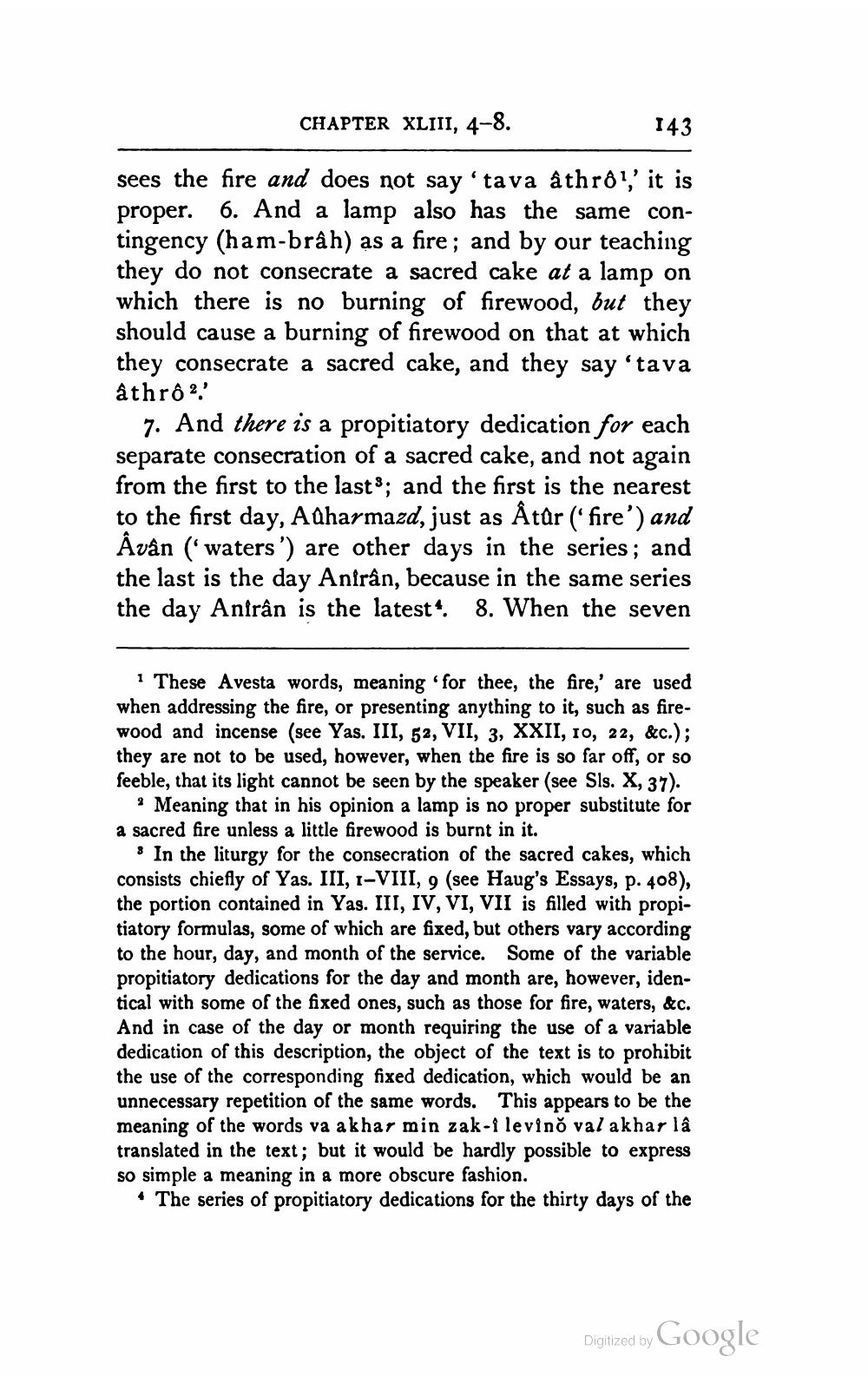________________
CHAPTER XLIII, 4-8.
143
sees the fire and does not say 'tava âthrô1,' it is proper. 6. And a lamp also has the same contingency (ham-brâh) as a fire; and by our teaching they do not consecrate a sacred cake at a lamp on which there is no burning of firewood, but they should cause a burning of firewood on that at which they consecrate a sacred cake, and they say 'tava âthrô
7. And there is a propitiatory dedication for each separate consecration of a sacred cake, and not again from the first to the last; and the first is the nearest to the first day, Aûharmazd, just as Âtûr ('fire') and Âvân ('waters') are other days in the series; and the last is the day Anfrân, because in the same series the day Anfrân is the latest. 8. When the seven
1 These Avesta words, meaning 'for thee, the fire,' are used when addressing the fire, or presenting anything to it, such as firewood and incense (see Yas. III, 52, VII, 3, XXII, 10, 22, &c.); they are not to be used, however, when the fire is so far off, or so feeble, that its light cannot be seen by the speaker (see Sls. X, 37).
2 Meaning that in his opinion a lamp is no proper substitute for a sacred fire unless a little firewood is burnt in it.
In the liturgy for the consecration of the sacred cakes, which consists chiefly of Yas. III, 1-VIII, 9 (see Haug's Essays, p. 408), the portion contained in Yas. III, IV, VI, VII is filled with propitiatory formulas, some of which are fixed, but others vary according to the hour, day, and month of the service. Some of the variable propitiatory dedications for the day and month are, however, identical with some of the fixed ones, such as those for fire, waters, &c. And in case of the day or month requiring the use of a variable dedication of this description, the object of the text is to prohibit the use of the corresponding fixed dedication, which would be an unnecessary repetition of the same words. This appears to be the meaning of the words va akhar min zak-i levino val akhar lâ translated in the text; but it would be hardly possible to express so simple a meaning in a more obscure fashion.
The series of propitiatory dedications for the thirty days of the
Digitized by
Google




